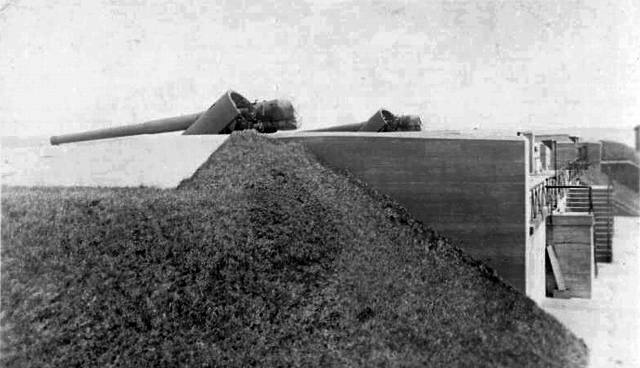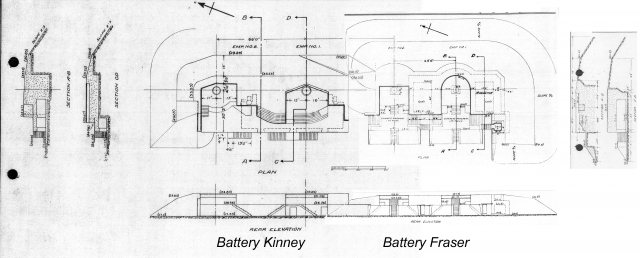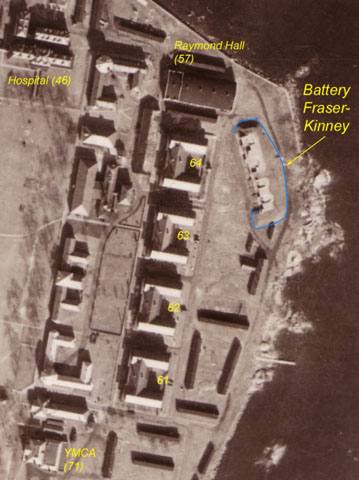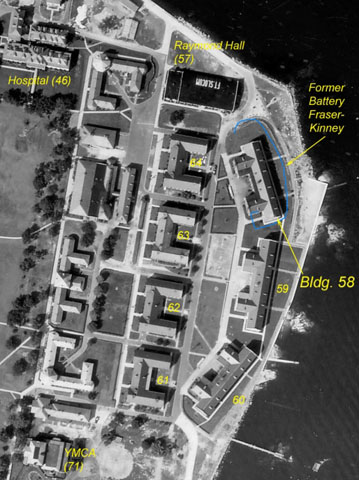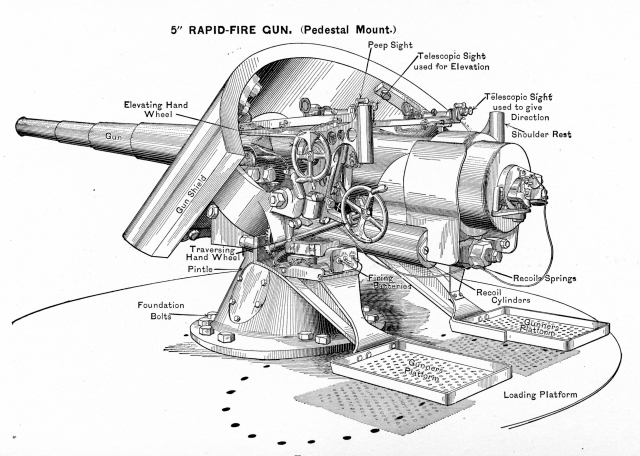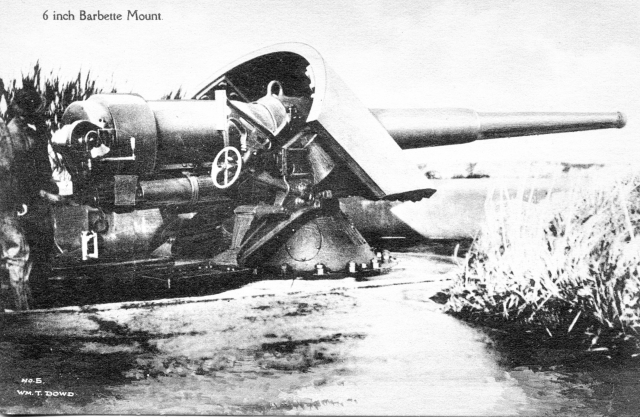|
To complement Fort Slocum’s Mortar Battery, the Army erected two adjoining direct-fire batteries on the northeastern shore of Davids Island in the area where Building 58, a large barracks, was subsequently built. These batteries, jointly called Battery Fraser-Kinney, swept the main channel of Long Island Sound about 1.7 miles east of Davids Island.
The guns of these batteries fired projectiles on relatively flat trajectories, in contrast to the high-angle trajectories of mortars. While seacoast mortar batteries were designed to attack the decks of enemy ships by raining shells on them from above, direct-fire batteries aimed for ships' superstructures, gun turrets and hulls.
Construction began in 1899 and was completed in 1904. Battery Fraser was built first in 1899-1900, and it was followed by Battery Kinney in 1903-1904. The earlier battery, Fraser, had two 5-inch pedestal-mounted rapid-fire guns, while the later battery, Kinney, had similar 6-inch guns. The two batteries were contiguous, and their fire would have been closely coordinated.
Battery Fraser-Kinney had a broad apron of earth, or parapet, in front of it for protection. The parapet sloped down from the height of the guns to the nearby shore and wrapped around the sides of the gun emplacement. The emplacement was constructed of cast-in-place concrete and was as much as 15 or 20 feet thick in places. It had two levels. The guns were mounted in barbettes, or platforms, on the upper level, where they just peeked over the lip of the parapet. The lower level had magazines holding ammunition and other supplies for the guns. The rear of the battery was open.
Battery Fraser-Kinney was fully operational for only a short while before Fort Slocum’s fortifications were deactivated. Its guns remained in place until 1917 when the Army removed them for use elsewhere on the East Coast. The empty battery remained until around 1930 when it was demolished to make way for the construction of Building 58.
|
